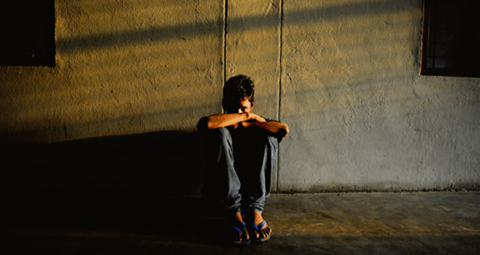February 23 | ![]() 0 COMMENTS
0 COMMENTS ![]() print
print

By refusing to make sinful choices, Scotland can eradicate human trafficking
Recently returned from a fact-finding mission to India and Rome, BISHOP BRIAN MCGEE says we must all play a part in fighting to end the trade in misery — By BISHOP BRIAN MCGEE
As the Bishop of Argyll and the Isles, I am used to travelling! It goes with the job. However, since the New Year I have travelled much further than even Stornoway.
Firstly, I was in India visiting three SCIAF projects. Our final trip was to the Indo-Nepalese border to see a new anti-trafficking initiative. The project is run by Indian Catholics but paid for by your donations to SCIAF.
The traffickers target children. The charity educates children and parents in the villages and schools, as well the police and transport companies. I talked with one 14-year-old girl that police had recently rescued, alerted by the charity’s information. I then met a mother whose 15-year-old daughter had been trafficked and rescued, but only one month later stolen again. She was inconsolable as she showed me a picture of her missing child.
Two days after returning from India, I was in Rome for the Santa Marta Conference. The Santa Marta Group encourages cooperation between the Catholic Church and law enforcement agencies worldwide. More than 30 countries were represented from every continent.
I learned that, today, 40 million people are enslaved—each one a unique human being and as loved by their families as those young Indian girls.
Human trafficking is the second most profitable illegal trade in the world, making $150 billion (£107 billion) each year. But why encourage Church and police forces to work together?
The Church is the world’s largest community and its members are called to serve God and other people. Meanwhile, the police exist to keep us safe and arrest criminals.
First, in the countries where people are most likely to be trafficked from, the police are corrupt. It is the Church that raises awareness and practical support. In such countries the Church encourages the police to engage with the issue. When the victims reach Europe, although desperate, they are frightened to approach our police—presuming that they too will be corrupt. They are much more likely to trust the Church. Interestingly, many European police forces ask religious Sisters to solace those whom they have rescued.
Second, most slaves are not hidden. Their chains are invisible since they live in plain view. While many are forced into the sex industry, others work in fishing, construction, manufacturing, agriculture, tourism and nail bars. In other words, you have met them without knowing it.
The Church encourages us to become more sensitive to people’s situations. For example, why not chat with those who deliver your services? It only takes a minute or two but over time a wee relationship builds up. Perhaps you will become a little concerned at someone’s comments. If so, please inform your local police.
Third, the police can arrest criminals but the issue runs deeper—human behaviour. I listened to impassioned pleas from Asia and Africa: “Can the Church not do more to change people’s behaviour?”
Indeed she can, and she must. The Church’s primary task is to save souls, but God also expects her to better the world. The Church must loudly proclaim Christ’s call to conversion.
The world’s most vulnerable people are the most likely to be trafficked. Poverty and war creates vulnerable people. The existence of poverty and war is not inevitable but a choice.
Christians are obliged to better the world by making the correct moral choices. If only the destitute could experience justice, peace, work and food, then they would want to stay at home. Likewise, since Scotland is a destination for trafficked slaves, if we only (as individuals and businesses) refused to make the morally sinful choices then there would be no market, and so no profit for human trafficking here. The trade would cease!
I look forward to meeting Police Scotland to explore ways in which our Church and the police can work in partnership to eradicate this horrific evil. St Josephine Bakhita, pray for us.










